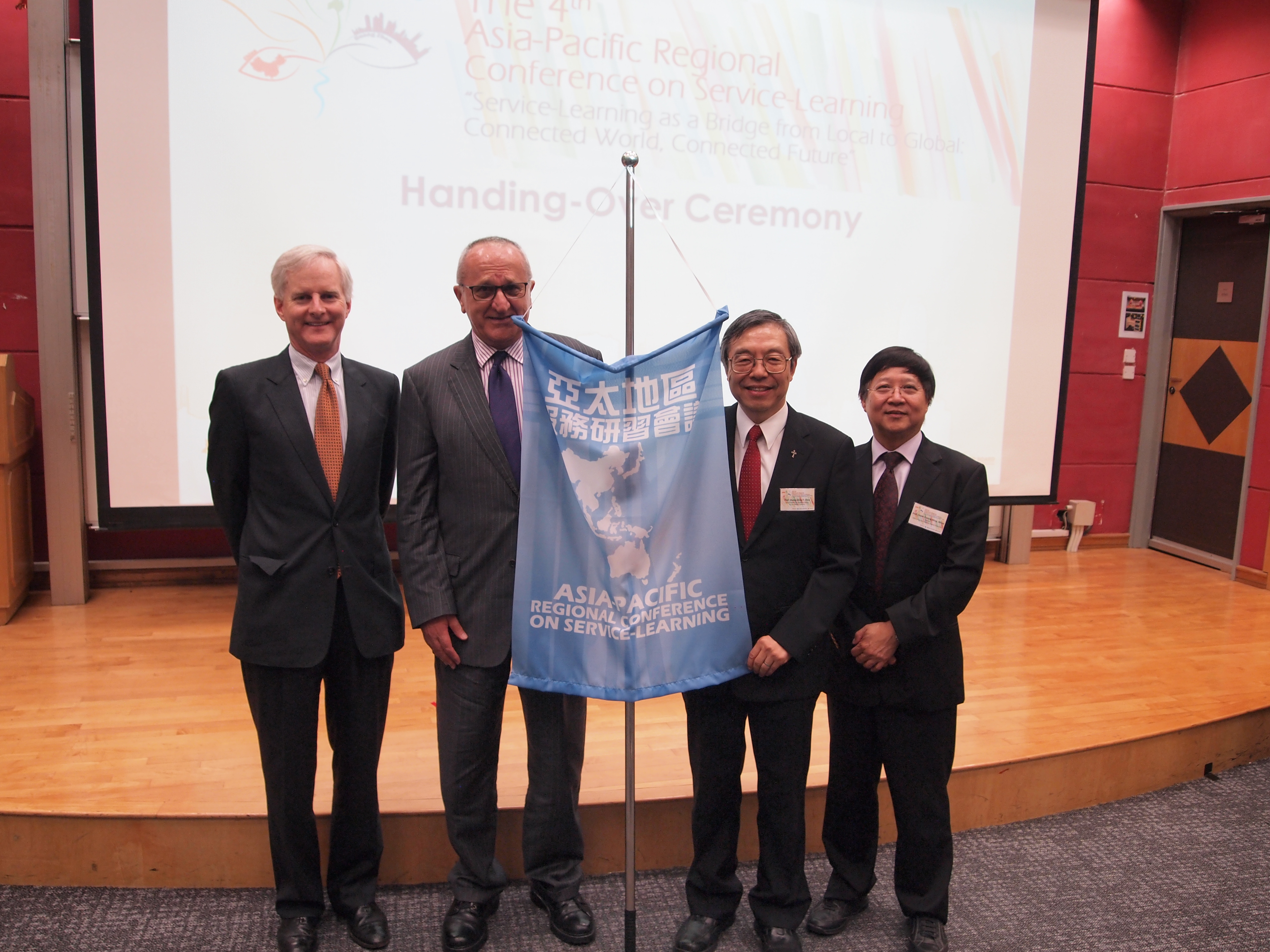Location
MD215, Paul Cardinal Shen Medical Building, Fu Jen University
Start Date
29-5-2015 1:30 PM
End Date
29-5-2015 2:40 PM
Description
In this age of climate change, disasters and calamities have become more frequent and deadlier all over the world. The situation is even graver in Asia, where many countries are more vulnerable to greater risks to lives and property due to their location - the Pacific Ocean where cyclones brew and move westward, with the possibilities of resulting in storm surges and tsunamis, and the Ring of Fire, where a large number of earthquakes and volcanic eruptions occur.
As a response to a 2013 disaster (Typhoon Haiyan), which killed about 7,000 persons in the Philippines, the United Board of Christian Higher Education in Asia organized and sponsored International Service-Learning 2014 held late in June and early July of 2014 to highlight the role of universities in the response to calamities and disasters in central Philippines which was the worst hit area by t he super typhoon. More than 200 faculty and students from about two dozen institutions in nine Asian countries participated in the conference and community work which was held in eight villages spread in three provinces of two major islands in the country.
One of these communities is a small fishing island in the Province of Negros Occidental where 22 participants - both Filipinos and foreigners - were assigned. The foreigners assigned in the island were students from Indonesia, Macau, Taiwan and Hong Kong.
The paper discusses the learning experiences and insights gained by the students based on the parameters set by Dan Butin's "Four Lenses of Service-Learning" (2005). These insights include the technical, cultural, political and post-modern dimensions after they lived in the island for 10 days and rendered several forms of community service.
The learning insights and participants' suggestions will contribute to the better planning and implementation of similar programs in the near future, especially those that involve international students engaged in service-learning in calamity-stricken areas beyond their borders.
Recommended Citation
Panganiban, K., & Del Carmen, A.(2015, May). Learning from disasters in an island community: Insights gained by participants of the international service-learning 2014 in the Philippines. Paper presented at the 5th Asia-Pacific Regional Conference on Service-Learning: Love Journey: Community Engagement through Service-Learning, Fu Jen Catholic University, Taiwan.
Included in
Learning from disasters in an island community : insights gained by participants of the international service-learning 2014 in the Philippines
MD215, Paul Cardinal Shen Medical Building, Fu Jen University
In this age of climate change, disasters and calamities have become more frequent and deadlier all over the world. The situation is even graver in Asia, where many countries are more vulnerable to greater risks to lives and property due to their location - the Pacific Ocean where cyclones brew and move westward, with the possibilities of resulting in storm surges and tsunamis, and the Ring of Fire, where a large number of earthquakes and volcanic eruptions occur.
As a response to a 2013 disaster (Typhoon Haiyan), which killed about 7,000 persons in the Philippines, the United Board of Christian Higher Education in Asia organized and sponsored International Service-Learning 2014 held late in June and early July of 2014 to highlight the role of universities in the response to calamities and disasters in central Philippines which was the worst hit area by t he super typhoon. More than 200 faculty and students from about two dozen institutions in nine Asian countries participated in the conference and community work which was held in eight villages spread in three provinces of two major islands in the country.
One of these communities is a small fishing island in the Province of Negros Occidental where 22 participants - both Filipinos and foreigners - were assigned. The foreigners assigned in the island were students from Indonesia, Macau, Taiwan and Hong Kong.
The paper discusses the learning experiences and insights gained by the students based on the parameters set by Dan Butin's "Four Lenses of Service-Learning" (2005). These insights include the technical, cultural, political and post-modern dimensions after they lived in the island for 10 days and rendered several forms of community service.
The learning insights and participants' suggestions will contribute to the better planning and implementation of similar programs in the near future, especially those that involve international students engaged in service-learning in calamity-stricken areas beyond their borders.
